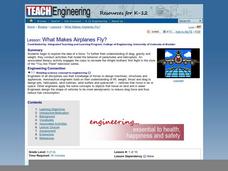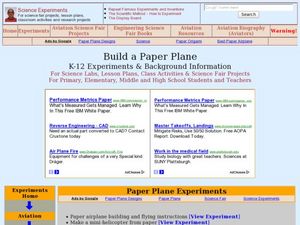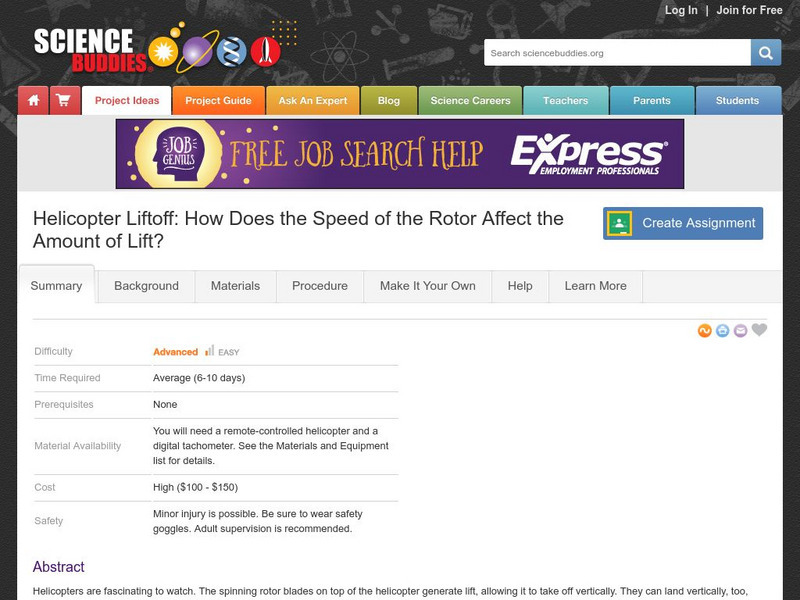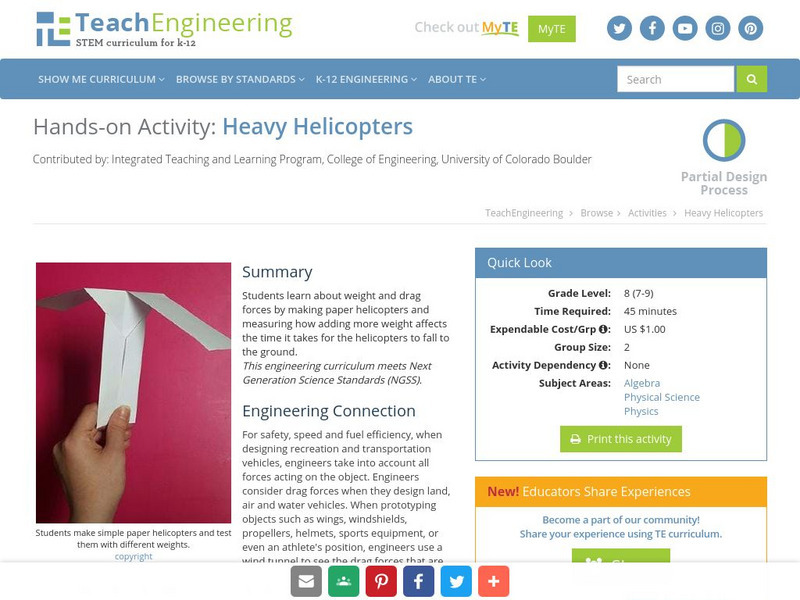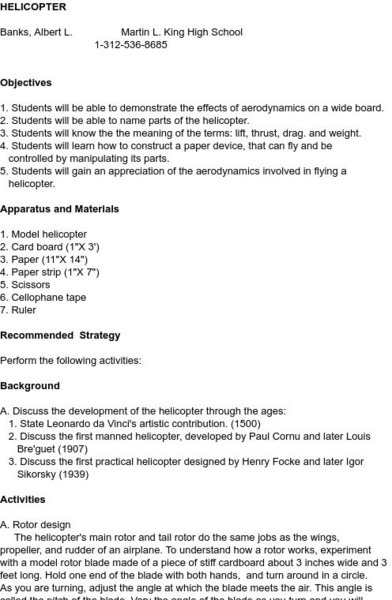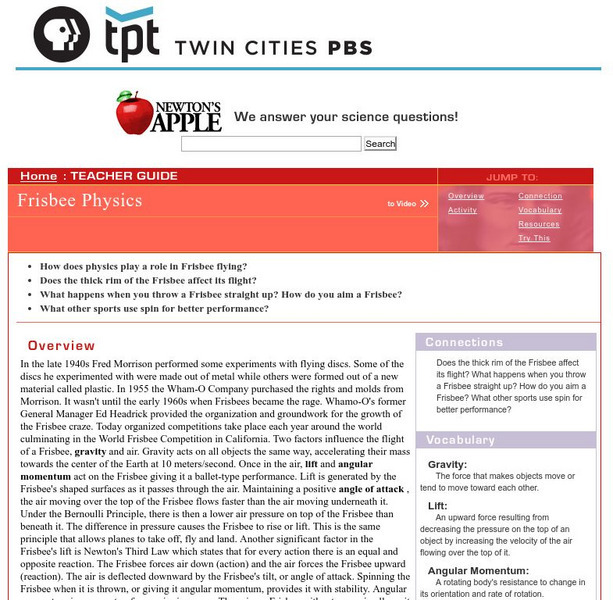Curated OER
Exploring Aerodynamics
Students explore aerodynamics. In this aerodynamics lesson, students study the flight patterns of three paper airplanes and discover the underlying principles of aerodynamics. Resources and grade level modifications are present.
Curated OER
TE Activity: Heavy Helicopters
Students study the concepts of weight and drag while making paper helicopters. They measure how adding more weight to the helicopter changes the time for the helicopter to fall to the ground. They apply what they examine to the work of...
Curated OER
What Makes Airplanes Fly?
Learners examine force and conduct activities that model parachutes and helicopters. In this airplanes lesson students identify the forces that make airplanes fly higher and land.
Curated OER
The Invention of the Parachute
Learners study the invention of the parachute and how Leonardo da Vinci came up with the design. In this aerodynamics lesson students test the properties that make parachutes more efficient.
Curated OER
Understanding the Four Forces of Flight
In this four forces of flight worksheet, learners read a 1 page article on flights, answer 5 questions with multiple choice answers, draw a line to connect the four forces to their definitions and answer 1 short answer scenario.
Curated OER
Build a Paper Plane
Learners study the history of the paper plane. In this design lesson students create several types of paper planes and determine if there is a difference in mean flight distances.
Science Buddies
Science Buddies: Project Ideas: Helicopter Liftoff: Rotor Speed Affect on Lift
In this science fair project, measure the rate of rotation of a remote-controlled helicopter rotor, using a digital tachometer, and relate this to the lift the blade generates. The Science Buddies project ideas are set up consistently...
Science Buddies
Science Buddies: Efficient Propeller Design
There's a lot to understand about the simple propeller to see how it affects lift and thrust in an airplane or helicopter. This Science Buddies project gives you lots of ideas on how to change the design of the propeller to achieve...
TeachEngineering
Teach Engineering: Heavy Helicopters
Students learn about weight and drag forces by making paper helicopters and measuring how adding more weight affects the time it takes for the helicopters to fall to the ground.
Other
Crouse Law Offices: How Helicopters Work
Explains what aerodynamic principles and elements of its design enable a helicopter to fly.
Michigan Reach Out
Nasa Trc: Maple Seed Helicopters
Students study the aerodynamic properties of a maple seed and then apply what they observe making their own flying object.
Exploratorium
Exploratorium: Roto Copter
Students can experiment with a home-made helicopter that lets them change the blades to see how real aerodynamics work.
Museum of Science
Museum of Science and Industry, Chicago: Activities: Make and Fly a Helicopter
Print and cut out the template for the helicopter. Then experiment with adding and subtracting weight, or changing the shape of the copter or the blades to see what makes it fly best.
Science and Mathematics Initiative for Learning Enhancement (SMILE)
Smile: Lab Activity: Helicopter
The Illinois Institute of Technology lets students investigate the aerodynamics of a helicopter, focusing on the variables which effect the lift, thrust, drag, and weight. Students investigate the effects of aerodynamics on a wide board.
Other
Easy to Make Paper Airplanes
Have fun making different kinds of flying vehicles. You will learn how to make a paper airplane, helicopter, rocket, blimp, etc.
TeachEngineering
Teach Engineering: What Makes Airplanes Fly?
Students begin to explore the idea of a force. To further their understanding of drag, gravity and weight, they conduct activities that model the behavior of parachutes and helicopters. An associated literacy activity engages the class...
Science and Mathematics Initiative for Learning Enhancement (SMILE)
Smile: Lab Activity: Aviation
This site from the Illinois Institute of Technology provides a student lab activity in which the flight of a paper airplane is investigated and studied. Designed for primary grades, but easily adaptable for junior high students.
PBS
Newton's Apple: Frisbee Physics
This teacher's guide from Public Television's Newton's Apple discusses and illustrates the physics principles governing the flight of a frisbee. Includes teacher lesson plans, activity ideas, discussion questions, and information about...
National Academy of Engineering
Greatest Achievements: Airplane
This page provides an overview of the history behind one of the greatest engineering innovations of all time:the airplane. There is also a timeline showing its development.
Curated OER
Roto Copter
Students can experiment with a home-made helicopter that lets them change the blades to see how real aerodynamics work.
Curated OER
Roto Copter
Students can experiment with a home-made helicopter that lets them change the blades to see how real aerodynamics work.
Curated OER
Roto Copter
Students can experiment with a home-made helicopter that lets them change the blades to see how real aerodynamics work.




